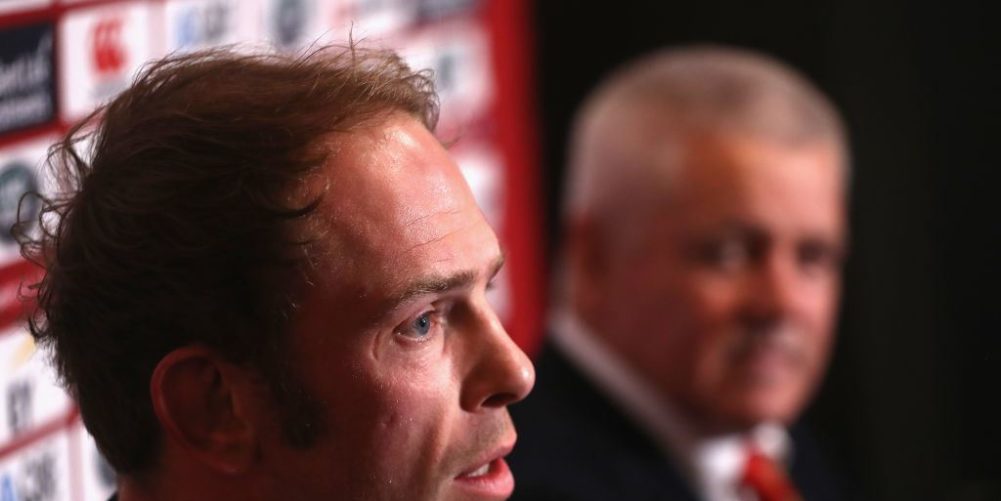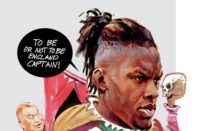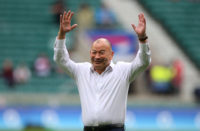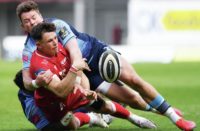WARREN Gatland paid fulsome tribute to Wales’ rock-of-ages captain Alun Wyn Jones, praising him as one of the greatest second row forwards the international game has seen when he was on the threshold of overtaking Richie McCaw’s world record 148 caps at the end of last month.
The 2021 Lions head coach described Alun Wyn Jones, a veteran of the 2009, 2013 and 2017 Lions tours, as well as a key component in the Welsh resurgence under Gatland from 2008 to 2019, as “an unbelievable competitor”.
Then, as often happens in this sport, Gatland’s flow was interrupted when the Welsh skipper’s milestone moment had the gloss taken off it, with Scotland finishing off the Covid interrupted Six Nations by winning 14-10 in Llanelli.
Despite the extraordinary longevity and effectiveness of Jones at international level, the Scots rained on his parade, claiming their first victory in Wales for 18 years.
When this was followed by a desultory 32-9 defeat by Ireland in Dublin last weekend in the opening round of the Autumn Nations Cup, AWJ’s chance of marking his landmark 150th cap in style disappeared.
Those two losses – which saw the Welsh slump to a sixth straight defeat during Wayne Pivac’s first year in charge – not only raised questions about the future of the head coach who had succeeded Gatland, but also, inevitably, over the 35-year-old Jones’ future, both as Wales captain and as a potential fourth time Lions tourist.
So far, Pivac’s only win in seven internationals has come at home against Italy. In terms of awkward, unexpected results the home defeat by the Scots was like watching a high-ball that should have been caught on the full, hitting the ground on the point-end, and, rather than rolling forward, bamboozling the Welsh chasers by bouncing back over their heads.
Dublin was even worse, because Pivac’s side seemed so flat that they were unable to chase with any urgency, let alone challenge an Irish outfit which has also undergone significant changes since the 2019 World Cup.
It was an unexpected turn of events for AWJ, because he was unable to bring his presence and experience to bear in arresting the Welsh set-piece slide, with the scrum in particular in serioustrouble against the Irish.
For Gatland, who always succeeded in bringing Wales to the boil leading into Lions tours during his 12 year tenure, ensuring large and influential Welsh contingents, the recent decline under his fellow Kiwi, Pivac, could also spell trouble.
The reality is that the win over Georgia last weekend cannot be seen as a remedy, and if the Welsh slide continues in the 2021 Six Nations it will bring with it a significant change in Gatland’s Lions selection strategy, with far fewer picked from the Wales ranks.
Gatland’s track-record has shown before that he is far more pragmatic than sentimental in terms of selection – witness the dropping of Brian O’Driscoll from the 2013 Lions third Test line-up. However, like all coaches, he goes to his tried-and-tested, and in his case that meant a hard core of Welshmen in the 2009, 2013, and 2017 Lions Test line-ups.
In 2009 in South Africa, when Gatland was on his first Lions tour as Ian McGeechan’s forwards coach, the Welsh had the largest representation in the squad with 15, including nine of the 22 in the first and second Test line-ups, and seven in the third. In 2013, after Gatland was promoted to Lions head coach for the tour to Australia, the Welsh again led the way with 15. This included the captain, Sam Warburton, and the ultra-durable AWJ, who skippered the side to the resounding third Test victory in Sydney with Warburton injured.
In that instance there were ten Welshmen in the starting 15 to face the Wallabies, while in the first and second Tests half the starters were Welsh.
In 2017 there was a shift, when, despite Warburton retaining the captaincy on the tour of New Zealand, England contributed 15 players, overtaking Wales with 12, Ireland 11, and Scotland three. But, although England also had the edge in Test starters, there was a Welsh core of five starters and two on the bench in the decisive second and third Tests, in Warburton, AWJ, Taulupe Faletau, Jonathan Davies, and Liam Williams, with Ken Owens and Rhys Webb among the replacements.

Following the drawn series with the world champion All Blacks, Jones’ reputation as one of the greatest locks in the world was assured, with the series victory over the Wallabies four years earlier, added to the 2009 South Africa tour, giving him the distinction of playing in nine Lions Tests.
Nor did his reputation lose any of its sheen when, following Warburton’s retirement, he led Wales to another World Cup semi-final in Yokohama last year, losing narrowly to the soon-to-be world champion South Africans.
However, the conundrum facing Gatland since then is that not only has Jones slipped from the heights, but he could lose out in a highly competitive race for the second row positions when the Lions return to South Africa next summer.
AWJ has to contend with not only Maro Itoje, his 2017 Test partner, but also Courtney Lawes, another Test Lion in NZ, plus the athletic young Irish lock James Ryan and the 2017 Lions tourist Iain Henderson. Add to that Scottish prospects Sam Skinner and Jonny Gray, as well as England’s Exeter newcomer Jonny Hill and the experienced Joe Launchbury, not to mention his Welsh teammate Cory Hill, and the task is formidable.
Gatland’s headache is that it is not just AWJ whose 2021 tour is suddenly in the balance. Other leading Welsh Test Lions in New Zealand who have gone quiet include No.8 Faletau and veteran hooker Owens, as well as his midfield talisman, Davies, and former match-winner, George North.
The downturn casts a shadow over other Welsh players on the 2017 tour who could challenge again for places, with Justin Tipuric and Ross Moriarty in back row contention, Dan Biggar in the mix at fly-half, and Liam Williams and Leigh Halfpenny in the back three.
The same applies to potential newcomers like scrum-halves Gareth Davies and Tomos Williams, wing Josh Adams, and back rower Aaron Wainwright.
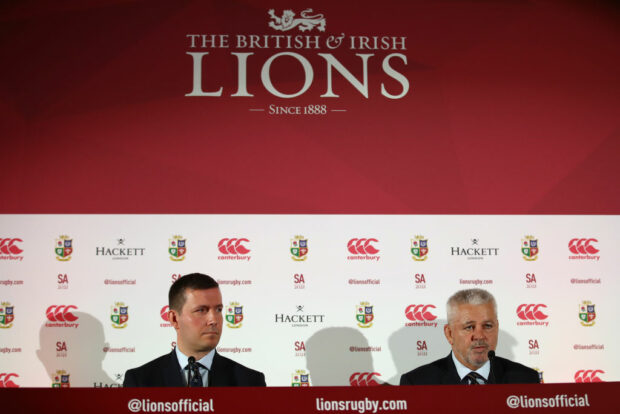
Gatland has also made it clear that competition for places will be even more intense, with the likelihood that the tour party to South Africa will be smaller than the 41-man squad he took to New Zealand. This is mainly because preparation for the first Test has been simplified for the Lions as the midweek game before it has been cut from the itinerary, removing the risk of Test players being injured.
He said recently: “We’re probably looking at 35 or 36 players – maybe a 20-15 split (forwards/backs), or a 20-16 split. In doing that we will probably name a standby squad. It does put a little bit more pressure on you in the five games leading up to the first Test in terms of your numbers, but if you pick a squad of 35 or 36 – with three players in certain positions – then they can engage fully up until the end of the tour. It means that if you’re not in the Test 23, you are only a performance or an injury away from getting selected.”
Three and a half years is a long time in pro rugby, and it could be that two successful Lions tours, and captaining Wales to their 2019 Six Nations Grand Slam, was the apex of not only Jones’ career, but of those teammates like Davies, Owens and Faletau.
Jones is unlikely to accept that, especially as a winning Lions series against South Africa – which eluded him on his first tour in 2009 – would be the ultimate prize.
It is worth remembering, too, that there were three elements in the Welsh resurgence under Gatland, which can be overlooked easily in the wake of the recent plunge in fortunes.
The first is that Gatland’s Wales were frequently below par in the autumn, but managed to peak for the Six Nations. The second is that the Welsh squad is full of players who have proved their quality at the highest level with the Lions already, and whose losing run includes narrow defeats by 2020 Six Nations front-runners England, 33-30 at Twickenham, and France 27-23 in Cardiff.
The third is the motivational force of turning-over both of those sides, with England at the top of the list. When they meet for the second time this year on Saturday at Parc y Scarlets in the Autumn Nations Cup, while the form book says that England will be favourites, it would also be no surprise if Wales shake themselves from their torpor to give their best display since the rugby restart.
However, it will only be a preamble, because Gatland has made it clear that the Six Nations is paramount when it comes to Lions selection – and in the process, he has provided Jones and the Welsh squad with the best pep-talk in town.
The Lions boss said: “The November games you look at…but it’s a build-up to the Six Nations. That’s where it really matters, that’s where points are at stake. It’s about how teams are performing at home, and, more importantly for me, it’s how you perform away from home, because that’s what the Lions have to do on tour. A big yardstick for selecting the Lions is definitely the Six Nations. Wales are not going through the best run… but they need to build towards the Six Nations, because that’s when it’s really going to matter.”
A 2021 tournament itinerary which sees Wales play Ireland and England at home, and travel to meet Scotland, Italy, and France, will give Gatland’s old crew every chance to stake their Lions claims – and he says it is up to them to seize it.
Gatland believes that Jones is still capable of leading that charge, irrespective of being in his mid-thirties.
“Age is no limit. When you are looking at a Lions squad, you are not thinking about the future, but about the here and now. You are thinking about the best players, and if their form is good enough. He is definitely not out of contention.”
As far as endorsements go, they do not come much stronger. Now we will see if Alun Wyn Jones and his Welsh teammates can raise their game to meet the challenge thrown down by their long-time mentor – or whether he is forced to move on.
NICK CAIN

